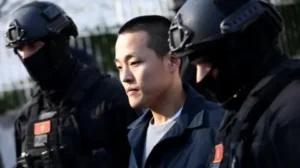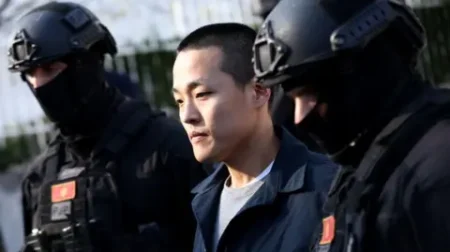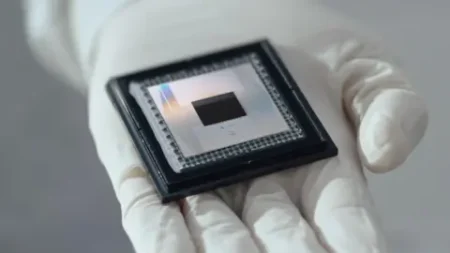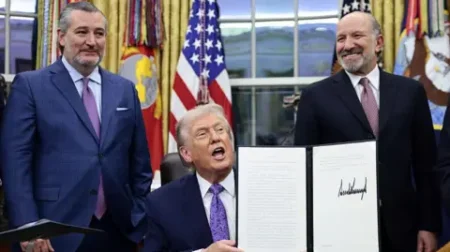Taiwan Semiconductor Manufacturing Company (TSMC) has made headlines with a groundbreaking announcement regarding an anticipated investment of $100 billion, marking the largest single foreign investment in United States history. This significant financial pledge underscores TSMC’s strategic decision to expand its operations within the U.S., specifically by establishing advanced packaging facilities in Arizona. As TSMC is responsible for producing over 90% of the world’s sophisticated semiconductor chips—integral components powering devices ranging from smartphones to artificial intelligence (AI) systems—the implications of this investment are monumental, not only for the U.S. market but also for its homeland of Taiwan, which has raised concerns about the potential impact on its economy and geopolitical status.
Advanced packaging technology is at the forefront of TSMC’s investment strategy, particularly in the face of surging demand driven by the escalating global interest in AI applications. Advanced packaging refers to the manufacturing arrangements that enable multiple semiconductor chips, including graphic processing units (GPUs) and central processing units (CPUs), to be placed closer together within devices. This technique enhances performance and boosts data transfer speeds while concurrently reducing energy consumption. Industry leaders like Jensen Huang, CEO of Nvidia, highlighted the critical nature of advanced packaging for AI functionality during a recent event at Computex in Taipei, asserting that no company has been more vigorous in promoting these technologies than Nvidia itself.
The geopolitical landscape between the United States and China further complicates the scenario surrounding semiconductor manufacturing. Despite a temporary easing of trade sanctions and a short truce on tariffs, the underlying tensions remain, primarily due to ongoing disputes regarding chip restrictions imposed by the U.S. This diplomatic friction introduces an additional layer of urgency for the U.S. as it strives to bolster its own semiconductor supply chain, particularly for technologies that are pivotal in the AI race against China.
Delving deeper into the specifics of advanced packaging processes, the encapsulation techniques not only safeguard the chips but also ensure efficient performance by optimizing spatial arrangements. Acknowledged experts such as Dan Nystedt, vice president at TrioOrient, further clarify that the focus is on minimizing space between chips and enhancing connectivity, allowing for smarter, faster computing solutions. Such advancements contribute to sustaining Moore’s Law, the principle predicting the exponential growth of transistors within microchips, thus preserving technological advancement in the face of escalating production costs.
The knowledge surrounding advanced packaging and the specific technique of Chips-on-Wafer-on-Substrate (CoWoS), which TSMC pioneered, gained traction recently amidst the AI surge following the launch of OpenAI’s ChatGPT. This particular technology has garnered recognition in Taiwan, shaping discussions among industry stalwarts. Both Nvidia and AMD rely heavily upon CoWoS to manufacture AI processors critical for data centers, underscoring its growing importance. The dramatic increase in demand for CoWoS has prompted TSMC to rapidly scale its production capabilities, revealing a significant increase in available advanced packaging capacity over the past two years.
Furthermore, the move to establish packaging and fabrication facilities in Arizona is seen as an effort to construct an integrated semiconductor production ecosystem, enhancing the U.S.’s competitive edge in AI technologies. By effectively diversifying the semiconductor supply chain—historically concentrated in Taiwan—this strategy mitigates risks associated with geopolitical tensions and potential supply chain disruptions. Nystedt notes that replicating packaging technologies like CoWoS in the U.S. helps reduce reliance on Taiwan, instilling a sense of security in American operations.
Interestingly, the CoWoS technology, which is gaining newfound popularity, has been around for over a decade. Initially proposed by renowned TSMC engineer Chiang Shang-yi, the technology was met with skepticism and slow adoption due to high costs and limited demand. However, the landscape shifted dramatically with the AI boom, which saw the technology evolve from a niche application to a vital component of modern computing infrastructure.
In the broader semiconductor ecosystem, companies engaging in packaging and testing are categorized as outsourced semiconductor assembly and test (OSAT) firms. This sector includes major players like TSMC, Intel, and Samsung, reinforcing the collaborative nature of advanced semiconductor technologies while highlighting the integral role of OSAT firms around the globe.
In conclusion, TSMC’s expansive $100 billion investment represents more than a business decision; it solidifies a strategic move within the tumultuous dynamics of global technology competition. As the U.S. pivots toward a more self-sufficient semiconductor production framework, the implications for AI technology, international relations, and future innovation are bound to reverberate far beyond the semiconductor industry.










